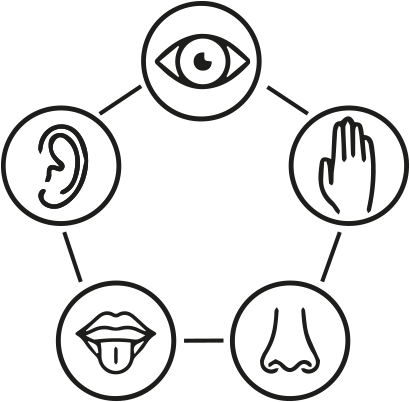Analysing Media – Introduction to phenomenology as a research method
| Analysing Media – Introduction to phenomenology as a research method
MA in Media Studies: Digital Cultures Maastricht University Coordinator & main teacher
|
| Intended learning outcomes (more on programme level) – if applicable
Phenomenology in MSDC
Why phenomenology in MSDC? “…in today’s university, most graduate students … are in such a hurry to ‘professionalize’ and to ‘understand’ that they … forget to attend to their ‘experience’ and to ‘see’… These are students who … display hermeneutic sophistication but who are secretly insecure and worried that everyone else … knows and understands more than they do. Students … mistrust their own … perceptual experience … they immediately dismiss it as trivial, wrong, or… singular… Ignoring the apodicticity and presence of their own embodied experience in the world, their thought about the world has no existential ground of its own from which to empirically proceed.” (Sobchack, 2006, pp. 14f) In short… Whatever else we do in digital culture, we need perceptual grounding in what we say and do! 1. to avoid empty speculation and mere wordplay 2. to avoid subjectivity of vague impressions How does phenomenology work? A phenomenological approach takes using a medium as a real experience, here and now
Not:
But: |
| Learning objectives (course specific)
It’s a part of the course about Media Studies, with heavy focus on phenomenology. During this course…
(cf. theoretical texts; concepts in the back of the syllabus and on CANVAS) |
| Objective statement (course description)
Phenomenology is… A “science of experience” (Ihde 2012, p.9) 1. Theory: Point of departure: our lives as embodied beings inhabiting the world Our primary access to the world: Sense-perception 2. Practice: Understanding phenomenology comes through doing it Some concepts: Being-in-the-world = living, sensing, inhabiting, involved in the world, with various objects, in specific activities e.g. involved with forest (object), in (activity of ) art, or exploring, or woodworking Intentionality Our involvement always has a particular shape and directedness. Different activities involve different relationships with the world and the objects in it.
= co-constitution Phenomenology counters the scientific worldview as the only real, true view, and is directed at our ‘primordial’ world “Have you ever gone swimming in H2O + NaCl? … I’ve swum in the North Sea, the Atlantic Ocean, the Pacific, the Mississippi… That’s an experience… Phenomenology attempts … to bring to center stage this original and meaningful world, which, of course is always there… The natural sciences work with the mere skeleton of things.” (Van den Berg, 1995, Lecture) Phenomenological research = study (logos) of appearances (phenomena) 1) Suspending our ordinary grasp (“the natural attitude”) on the world (epoché) Suspend what we think we know, opinions and explanations… for an attitude of wonder strangeness 2) Phenomenological reductions (hermeneutic rules as formulated by Ihde (2012)): – Attend to phenomena as they appear and how they show themselves – Describe, don’t explain (don’t interpret or give reasons) – Horizontalize/equalize all phenomena (don’t judge) 1) epoché; 2) phenomenological reductions 3) Finding the main structure of the phenomenon What is the intentionality of the media (product)? e.g. gun e.g. television (multistability) What belongs (essentially) to the phenomenon and what not? Seek/imagine variations, experiment, possibilize (“What if this element had been different…”) to find the invariant structure Classical phenomenology: one essence Post-phenomenology: multistability in different user practices; yet, these practices have a main structure Phenomenology works from … – this singular experience ? general structure – what you experience ? instance of a more general user – relational: observations on experience are linked to features in the object No! A phenomenological analysis is not ‘merely subjective’ (only when you didn’t do your work well ;)) Interactive products are complex You perceive and you are invited to act Not just: What and how do you perceive? A mediaproduct orchestrates your experience and actions (pre-reflectively) It invites, inhibits, suggests…. |
| Type of course
Skills & content course |
| Target group
Graduate students |
| Teaching method |
| Activities/ syllabus |
| Assessment of learning (Tasks, Assignments, Rubrics, Criteria, etc.)
(Small test: phenomenological question or not?)
Thesis examples: – How do Syrian refugees in the Netherlands experience attachment to place (closeness/remoteness), using cell-phones and FB? – How do users experience (control over) their bodies in the use of fertility apps/self-tracking wearables? – How do users experience control in using Video-on-demand (Netflix)? – How are time and space experienced in managing long-distance relationships through WA? – How do media users experience distance/closeness to remote family in times of COVID … (and how do they manage various media in the light of desired distance/closeness (= ethnography))? – To what extent and how are new forms of companionship experienced in relation to Voice Assistants? – How is ‘social presence’ of students transformed in online education? |
| Effect (witness account, evaluation of the course) |
Additional biblio sources
E. Husserl, M. Heidegger, M. Merleau-Ponty, J.-P. Sartre, P. Ricoeur, E. Levinas, M. Serres…
F. Buytendijk, J. van den Bergh, M. van Manen…
|
